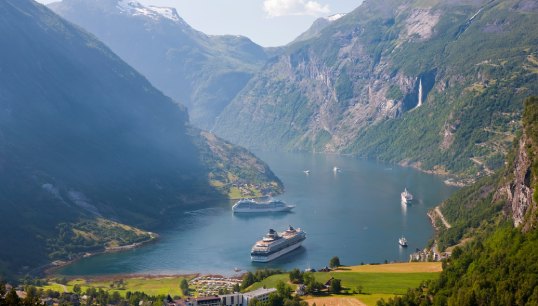
Norwegian unions are hailing pending legislation to enforce Norwegian pay and conditions in Norwegian waters as a ‘historic victory’.
The unions have fought for this step since 2008.
Hans Sande, head of the NSOF officers’ union, said: ‘The opponents said it wasn’t possible, that it would endanger company profits and Norwegian jobs, and that it was in breach of common law. We’ve fought for this for 13 years so for us it’s a historic victory’.
Minister of Fisheries and Ocean Policy Bjørnar Selnes Skjæran issued the consultation on enforcing Norwegian pay rates and terms and it will run till August. If it becomes law, the bill would mean:
- Norwegian wages and conditions for most ships sailing between Norwegian ports, offering maritime services on the Norwegian continental shelf and in the coastal Norwegian economic zone
- Vessels on the Norwegian continental shelf and in the Norwegian economic zone engaged in construction, operation or use of installations will be subject to the bill’s requirement if they are there for at least 30 days or more than three months in any year
- Cruise vessels sailing to or from a foreign port will be subject to the requirement if over half of their voyage time-wise is spent in Norwegian territorial waters
- Ships on international routes will be exempt
Mr Skjæran, a Labour minister, said: ‘This is a historic day for Norway. The requirement for Norwegian wages and conditions will protect workers by promoting a more just working life, prevent social dumping and counteract low-pay competition.’ The ministry said a just working life will create predictability and make the maritime industry a more attractive work prospect for young people, which would aid recruitment and employment in the entire industry.
The move follows years of debate, analysis and, most recently, a government-appointed committee which recommended the changes now being put forward. The unions say its research showed that many ships plying the Norwegian coast are from abroad and the crews are paid much less than Norwegians, especially in short-sea shipping and cruises. The biggest gap is in unskilled seafarers in shortsea shipping, where wages are a third of Norwegian levels.
Leader of the Norwegian Seafarers’ Union Johnny Hansen said the ball is now on the penalty spot and just needs to be put in the back of the net. Mr Skjæran says the majority gained at last autumn’s parliamentary election by left-wing parties should mean the bill will pass. The coalition Centre Party is also supporting the bill.
The Norwegian Shipowners’ Association have stood against the bill, claiming initially that the idea raises more questions than it answers. Then later they said owners operating to and from Norway are ‘shaken’. They acknowledge the proposal has good intentions but think the consequences might jeopardise rather than safeguard the place of Norwegian seafarers in Norwegian shipping.
Unions have also welcomed a bill tabled by the ecosocialist SV party, which would establish a health register for Norwegian seafarers. The party hopes a new register would promote health and prevent illness and injury.
Tags
More articles
UK allocates £2.4 million to seafarers' mental wellbeing, rights and maritime skills
The UK Government is allocating £2.4 million for projects to support seafarers' mental wellbeing and maritime projects developing green skills, diversity and ratings training.
Nautilus members share their maritime journeys for Day of the Seafarer
Nautilus members are sharing personal accounts of their career experience as part of the International Maritime Organization (IMO) Day of the Seafarer 2022.
100 days on from P&O Ferries mass sackings and government actions simply not enough
One of the actions contained in the nine-point plan is to give powers to harbour authorities to refuse access to vessels whose operators do not pay their seafarers the National Minimum Wage.
